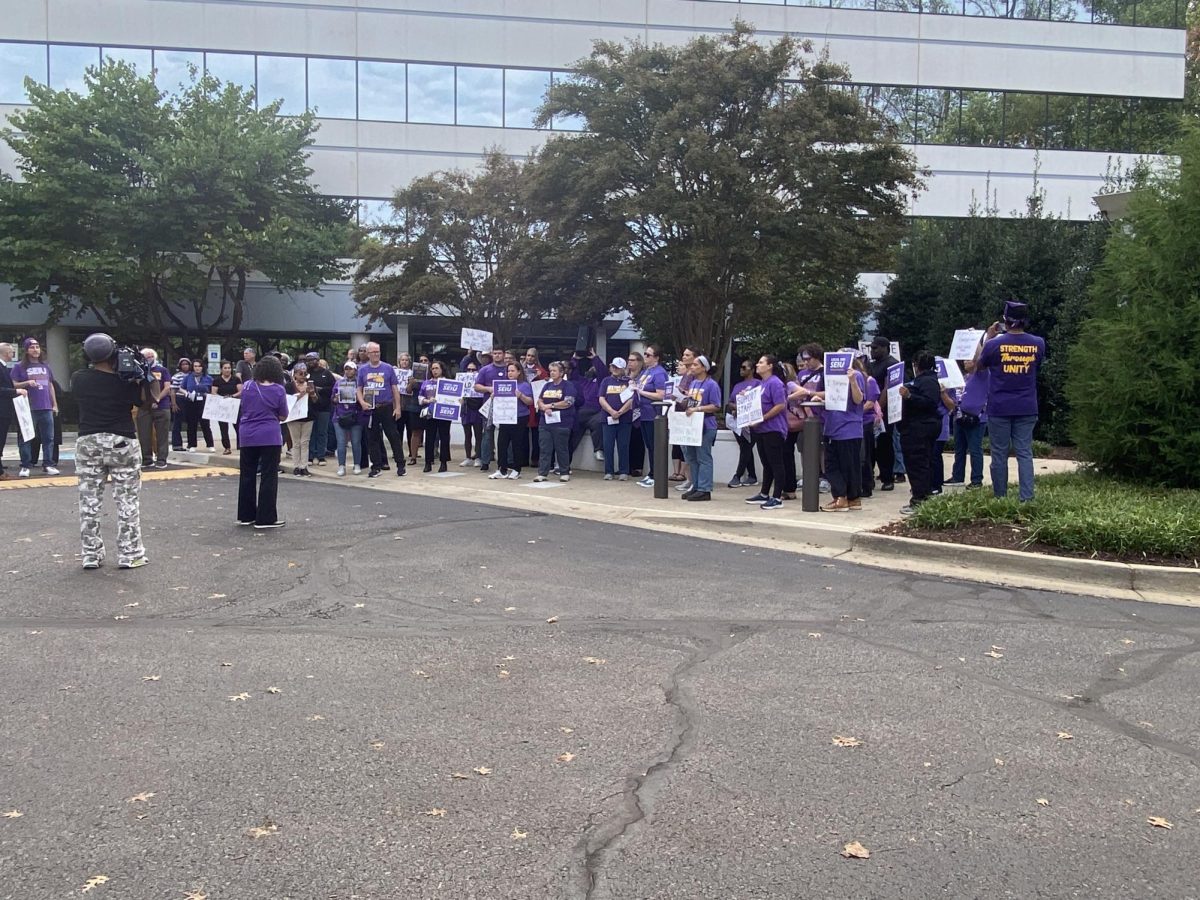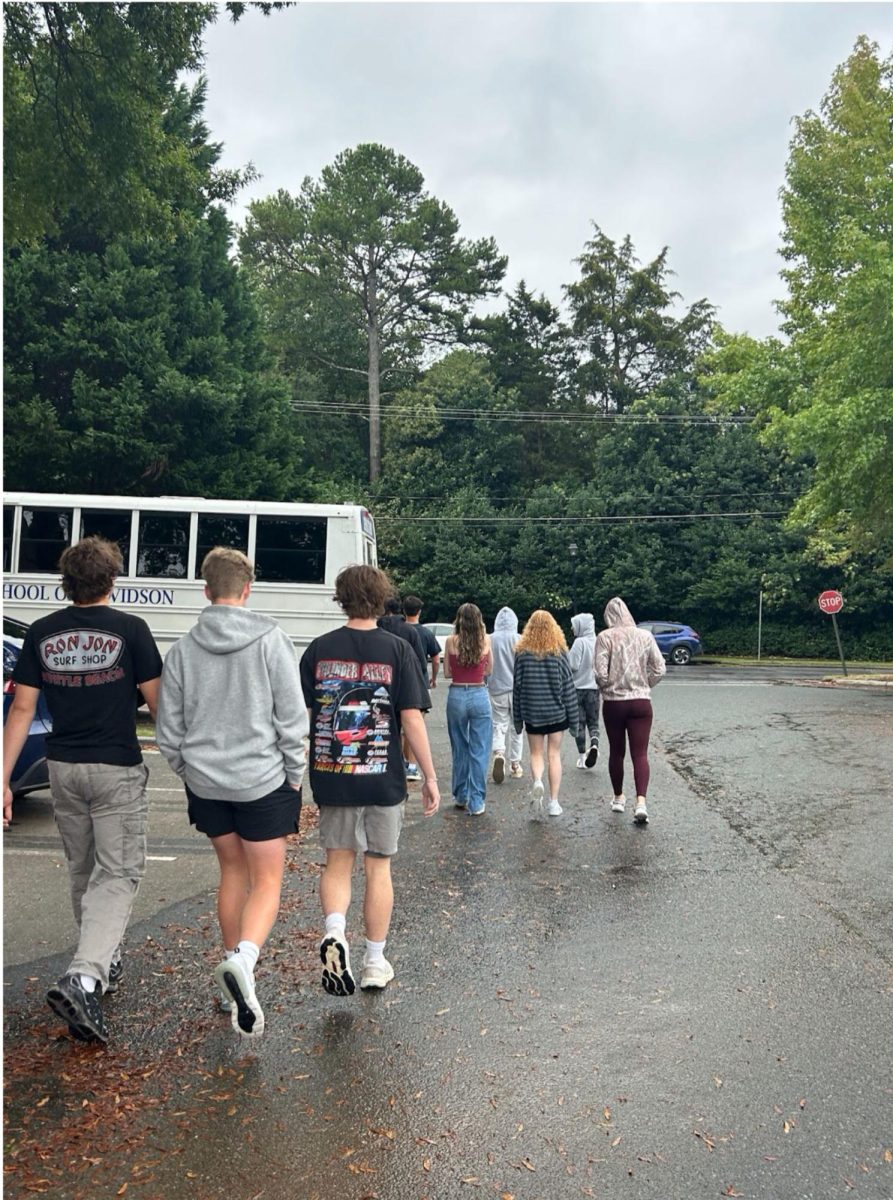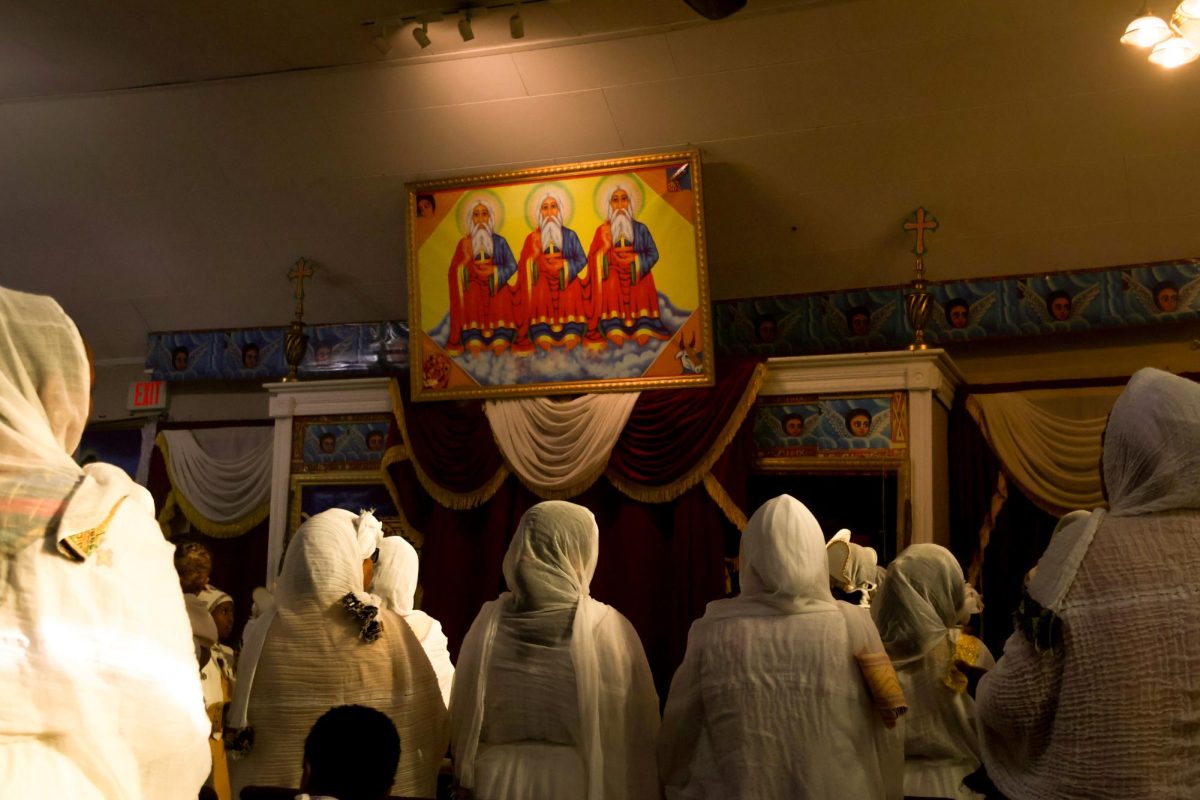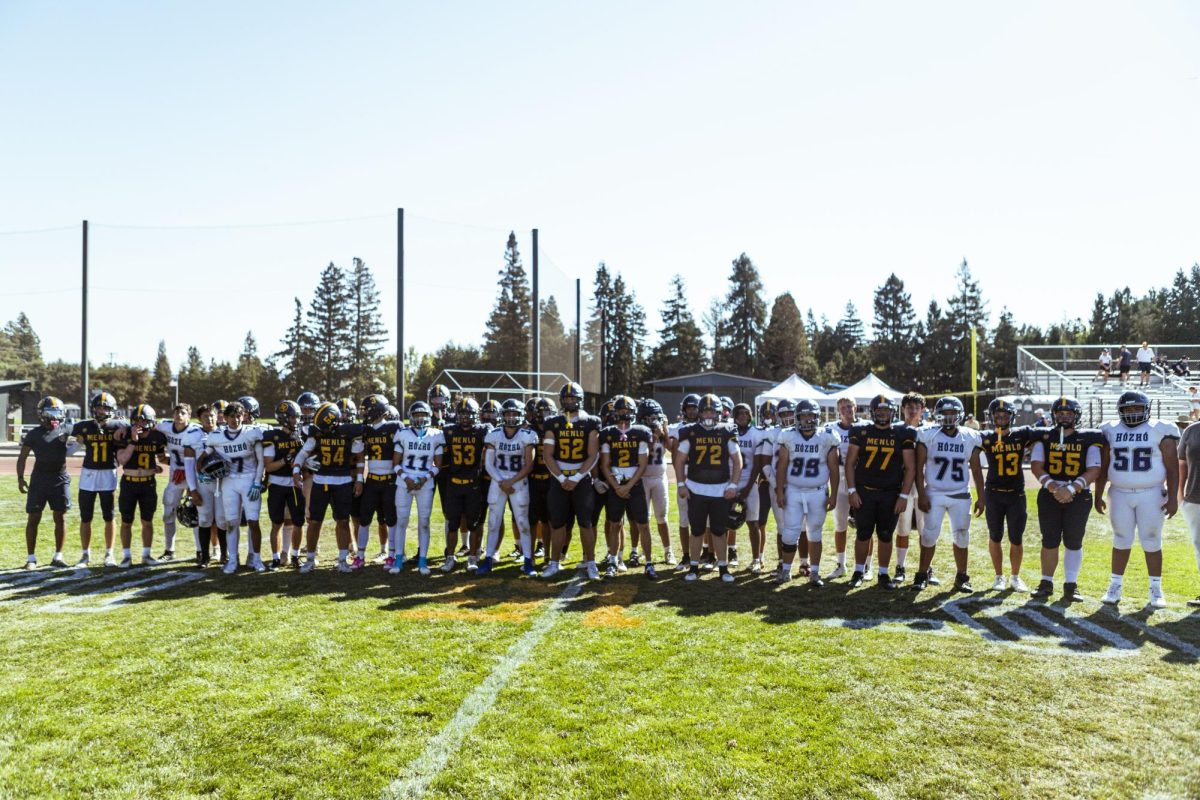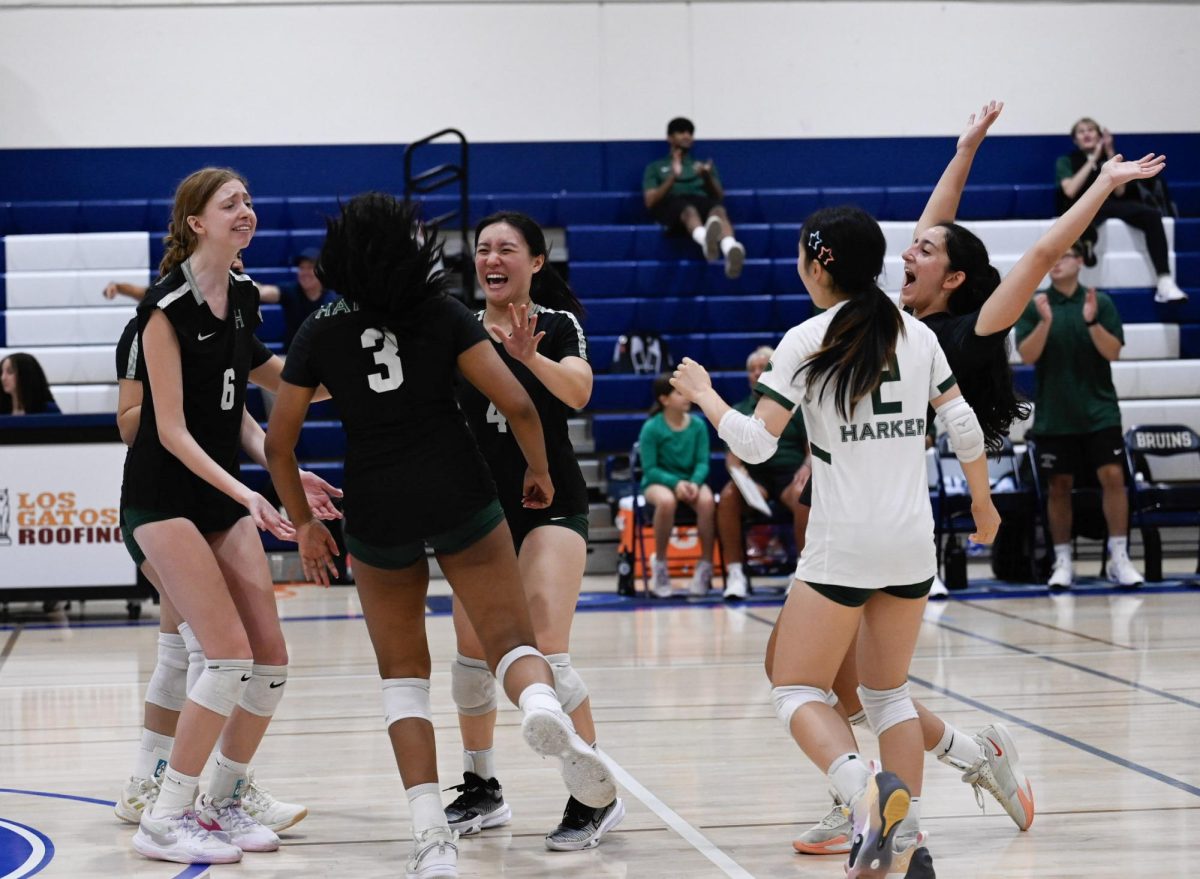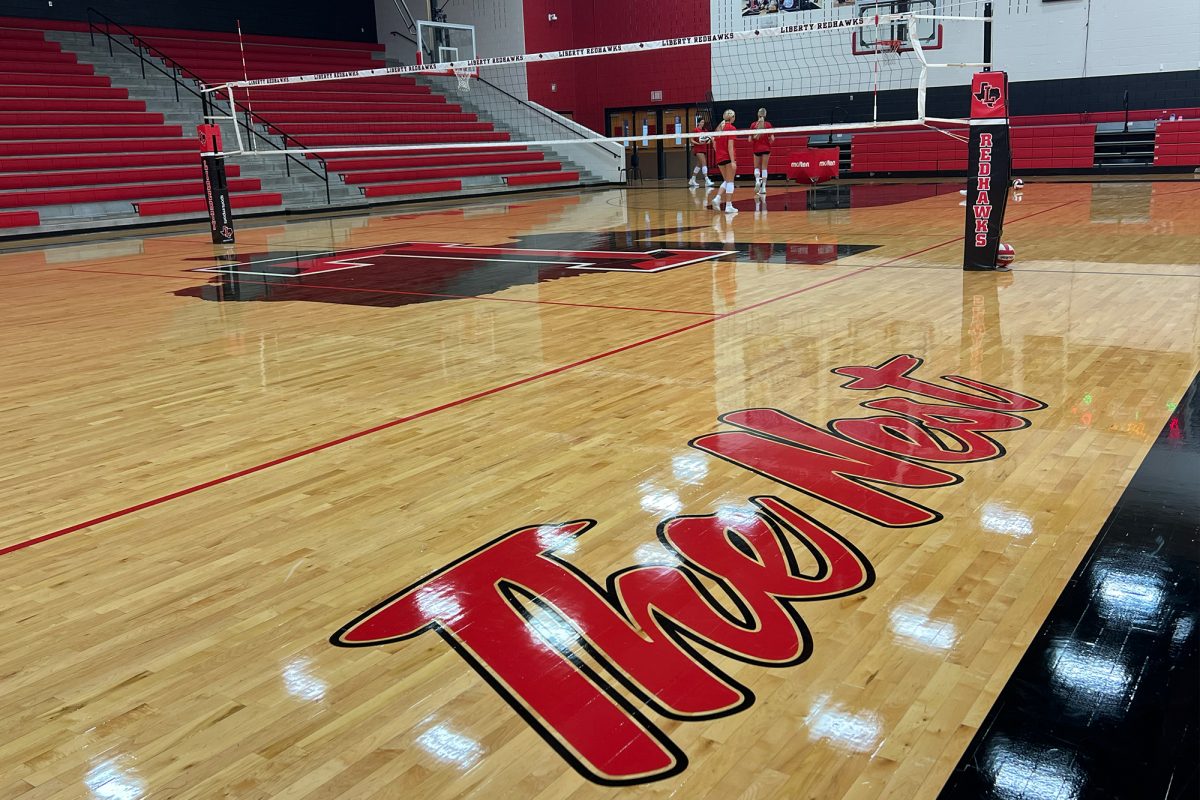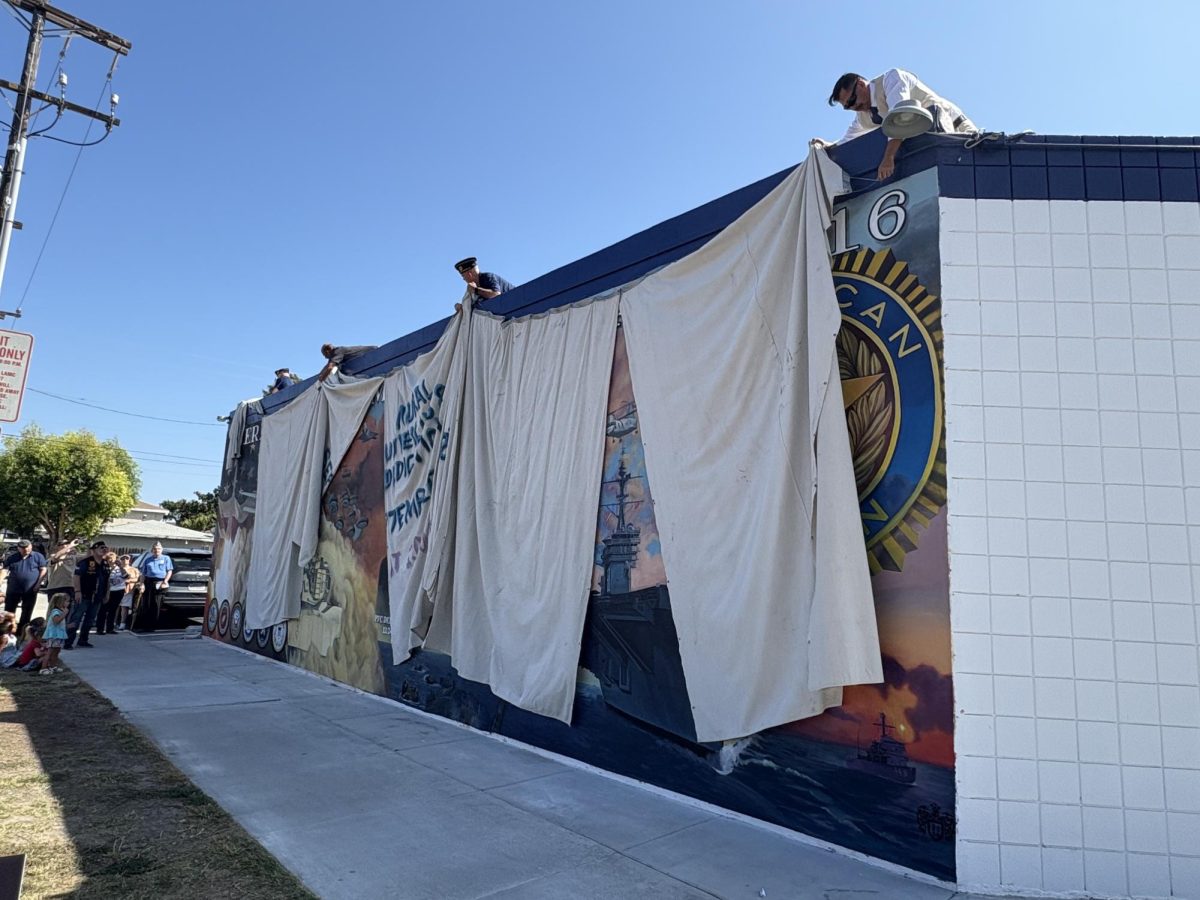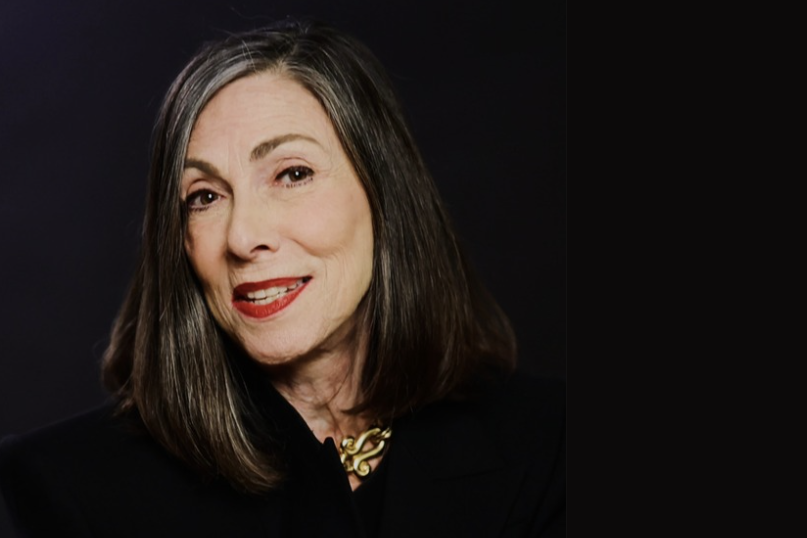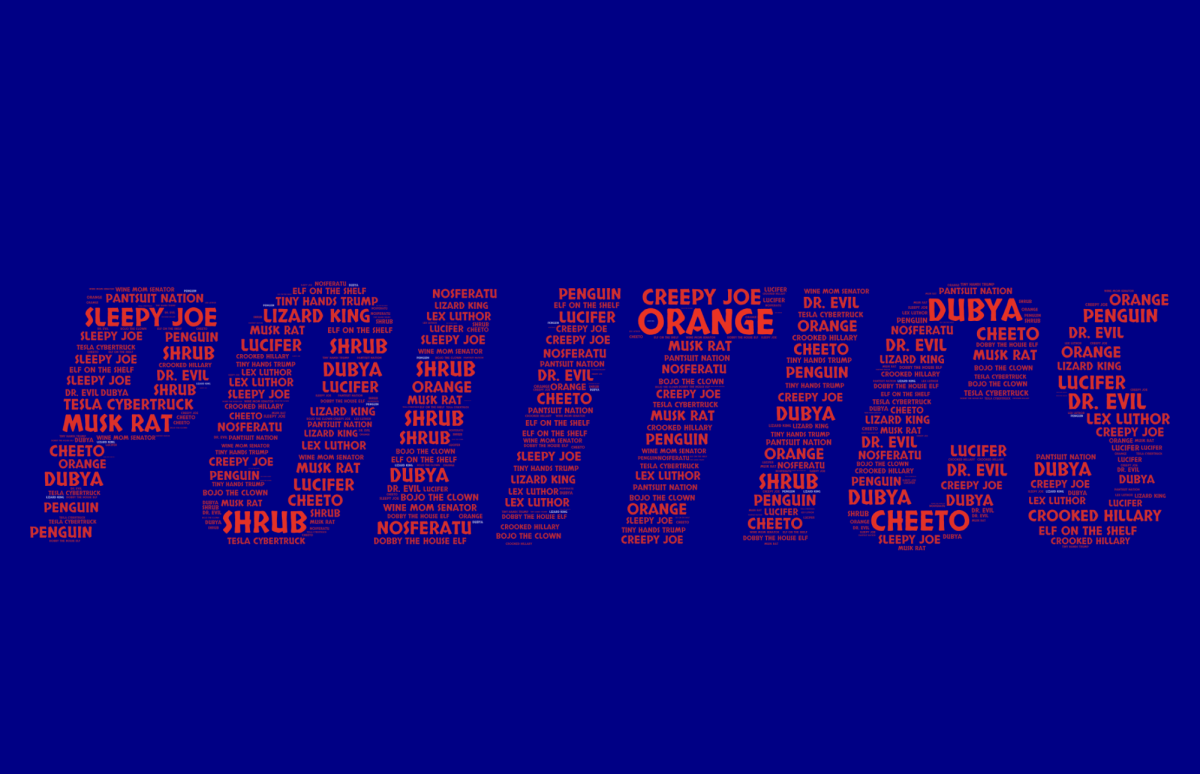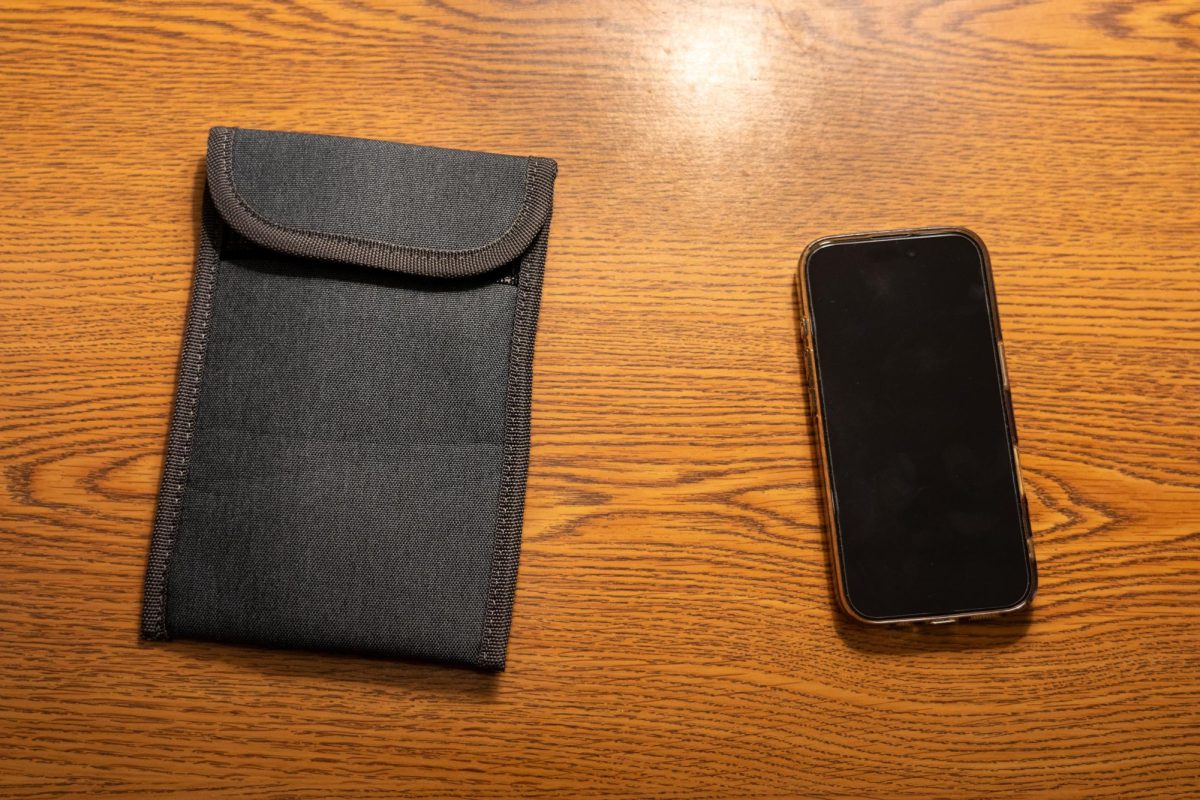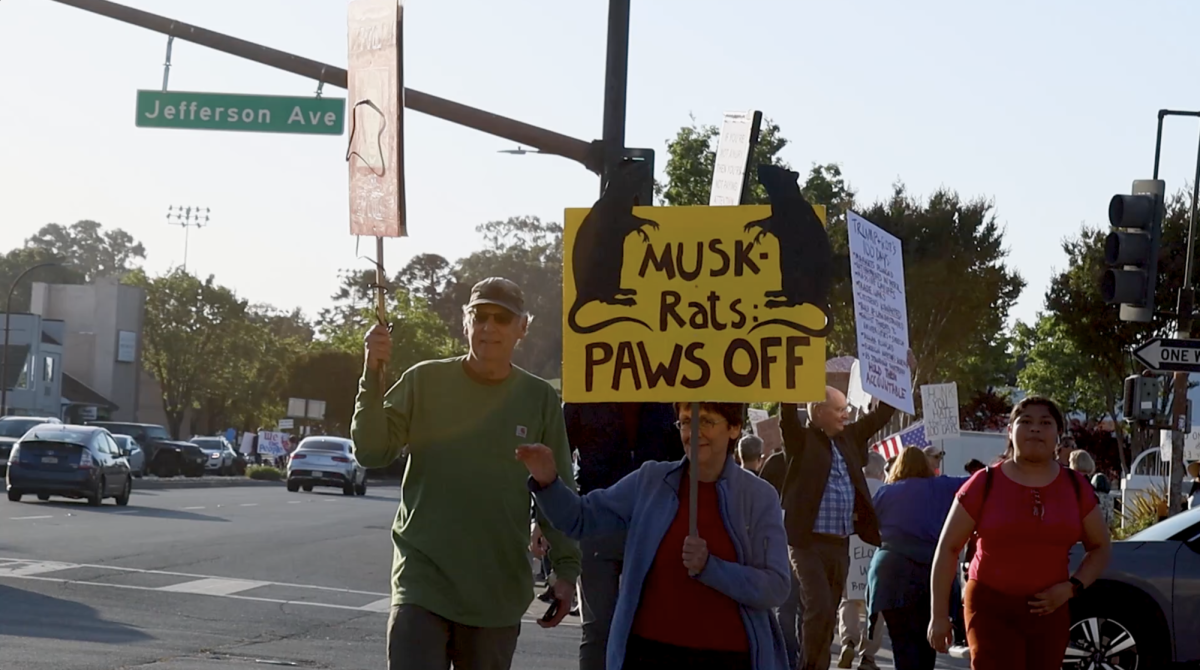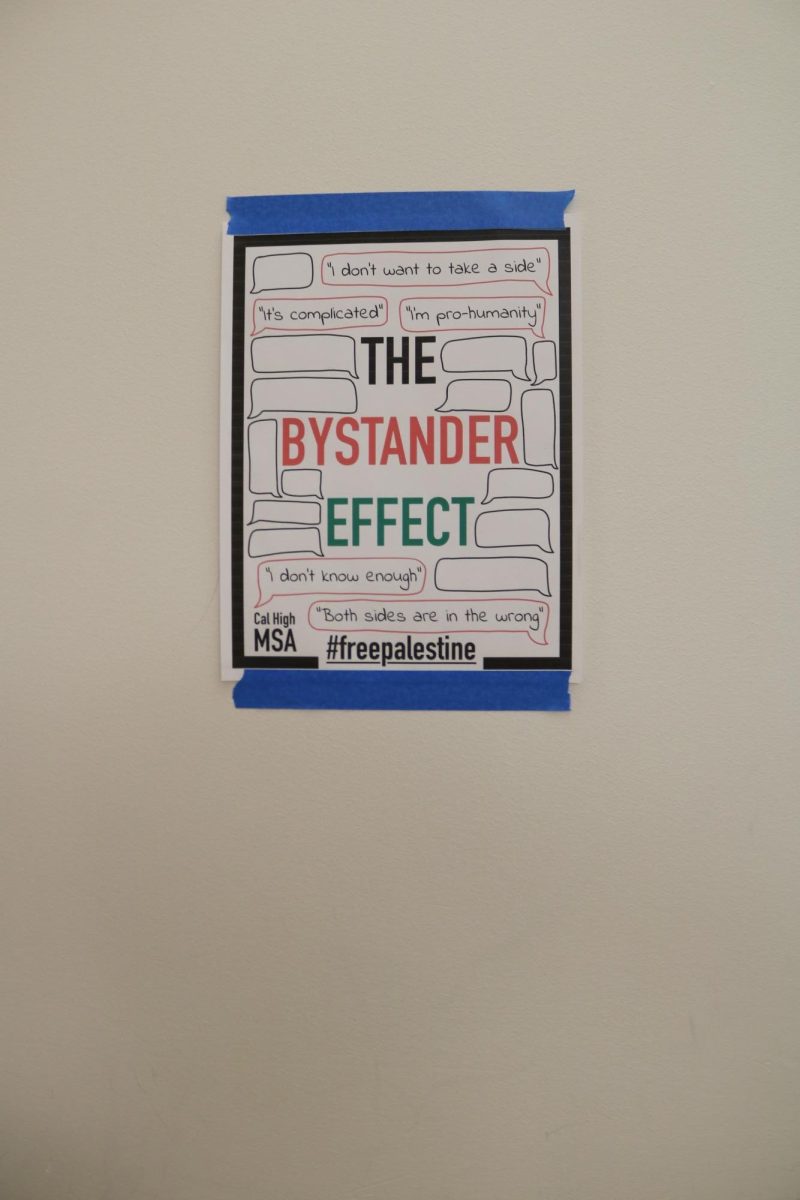The decision by Cal High administrators to remove Muslim Student Association (MSA) posters supporting Palestine last month has created controversy about free speech rights and censorship on campus.
In early February, sophomores Ren Guo and Nour Hussen Abdelaziz, who are affiliated with Cal’s MSA, posted signs that read “Cal for Palestine” and “Free Palestine” with QR codes leading to websites with more information about the conflict around the campus.
But the posters were taken down by administrators because of concerns about the safety of the posters’ content, which was not directly approved by the club’s adviser.
“We understand that MSA and all of our clubs really have the right to express themselves freely,” Principal Demetrius Ball said. “Part of that responsibility is also to make sure that it’s not going to cause disruption, cause a threat to anyone and those types of things.”
Social studies teacher Benjamin Andersen facilitated the process of poster-making and supported the campaign. Andersen said that multiple staff members expressed concerns about the wording of the posters, as well as the content of the QR code sources linked.
Because of staff concerns, Ball removed posters the MSA had taped in hallways around the main building.
Guo originally thought it was students who were taking down the posters, so they continued to put them up.
After talking with Andersen and MSA adviser Tasneem Khan, Ball called for a one-on-one meeting with Guo on Feb. 14 to inform them that he was the one who removed the posters. Shortly after, more than a dozen members of the MSA met with Ball to discuss the issue.
“The posters that the principal found to be slightly harmful, or the ones there were complaints about, [Ball] took those down first and then tried finding the person who was putting [them] up to obviously solve the problem,” Abdelaziz said.
Guo agreed with Ball’s concerns, but said they felt like the reasoning for the posters’ removal could have been communicated in a better way rather than just taking them down before explaining why.
Guo referenced California Education Code Section 48907 subsections A and D, which state that public school students have the right to exercise freedom of speech through posters, petitions, and badges. The ed code also states that school officials must show justification why the posters are being removed before actually taking them down.
Guo said Ball only learned about the problems with the posters, such as lacking the club adviser’s direct approval, after he removed the posters.
“We’re going to have conversations that things have to be approved before they’re posted,” Ball said. “That’s the bottom line. Whether they’re taken down before a student meeting, there’s always going to be a conversation happening.”
Ball consulted with other staff members and teachers involved in posting the signs before removing them.
A staff member first brought the posters to Ball’s attention. Earlier, that staff member saw Guo putting up the posters and asked them if a teacher was involved. Guo referred them to Andersen.
After Ball spoke with Andersen, he started to remove the posters.
“I feel like Mr. Ball should have first shown evidence to take them down,” Guo said.
In the private meeting with Guo, they said Ball told them the main reason for removing the posters was because they did not make room for different perspectives. He also told Guo that their sources were not officially approved by Khan.
Khan said she is not directly involved in MSA activities as their adviser.
But when students want to link sources on posters, they need approval from school staff if the information is not from school library resources, Ball said.
Ball also said that some sources on the posters could be considered anti-semitic or harmful to certain students.
“Ms. Khan never directly gave me her approval,” Guo said. “She said that I could put them up if I got the majority of the club to approve of it, but she never looked at the posters herself and gave her own approval.”
Andersen added that the lack of approval was the root problem with the posters. If Khan gave direct approval, Ball would have no reason to remove the posters.
“[Ball] said, if you get this approved by your club adviser, great,” Andersen said. “If you don’t, then we have to take them down, and that’s kind of the conclusion we came to.”
Ball also told Guo that their posters credited a group of Cal students called “Cal for Palestine.” Since this was not an ASB-approved club at Cal, they did not have permission to put up posters on campus or to use Cal’s name.
At the meeting with the MSA students, Ball said he told them and Guo that the posters had been taken down because of the potentially harmful content that the websites linked. The websites displayed history about the conflict in Palestine and news about movements in support of Gaza.
“There was an issue with one of the posters that had a barcode with outside information being put up on school walls,” Abdelaziz said. “There could be some slight information in those outside websites that could be harmful to be put up in schools.”
Abdelaziz also said that posting links to sites could imply that the MSA agrees with everything the site says. Links within the link could lead to websites that were not school-appropriate.
“My goal is to do what I can to support all of our organizations, all of our student organizations, and for everybody to feel safe,” Ball said. “I know that what’s going on in Palestine and Israel is very controversial and very sensitive and there’s a lot behind it. I want to do the best thing for all individuals that are impacted.”
After informing the MSA why the posters were removed, the meeting turned into a discussion of what rights students were allowed on campus regarding freedom of speech.
“First, we felt like we’re being targeted, we were shocked that our posters were being taken down,” Abdelaziz said. “But after talking to Mr. Ball and understanding why these things could have eventually caused problems, we understood [and] we came to a conclusion that the school still gave us rights to put things up, if they were within the restrictions.”
Andersen said free speech rights in a school environment can be confusing at times.
“I think it was a good discussion to have with the students to kind of talk about the rights [they] have,” Andersen said. “And I think the students came back a little more clear about what they can do to advocate for what they’re going to advocate for.”
Guo said the meeting with Ball clarified what content they could post in the future and how they can advocate for the causes they are passionate about.
“Of course it is frustrating that [the posters] were taken down and at first, I felt like some [rules] weren’t followed,” Guo said. “So, I am really glad that Mr. Ball took the time and effort to work with us.”
Guo and the MSA plan to make new posters that follow school policy to advocate for their cause in a school-appropriate way.
“We want to do something to educate people, give our opinion a little bit,” Abdelaziz said. “That’s why we wanted to put up these posters to show that not everything on social media is true, but then also educate others and give our opinion.”
Abdelaziz said she and Guo were wanting to spread this message for a long time, and that they’re still interested in bring awareness to these issues.
“We wanted to put these posters up because this issue has been a problem for, not just the world, but us personally,” Abdelaziz said. “To be scrolling on social media and seeing horrifying, heartbreaking images, affecting us personally, like especially going to school every day.”
This story was originally published on The Californian on March 28, 2024.

